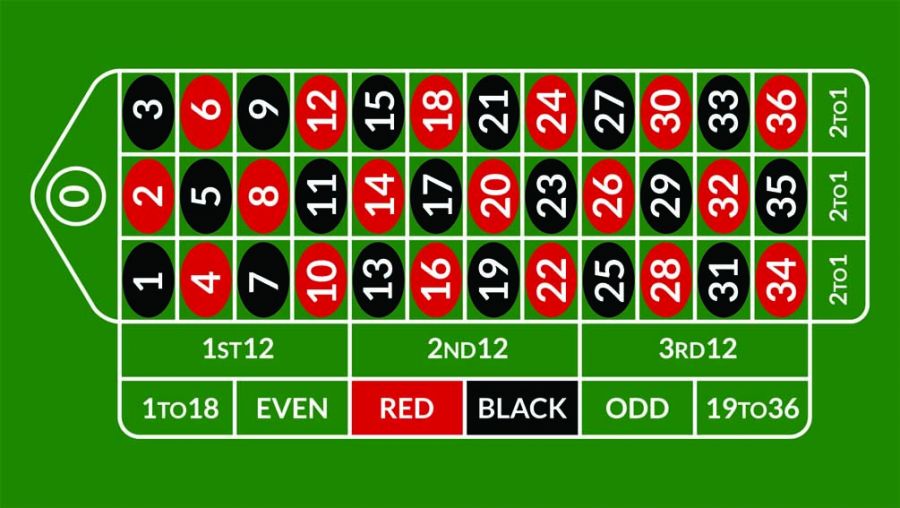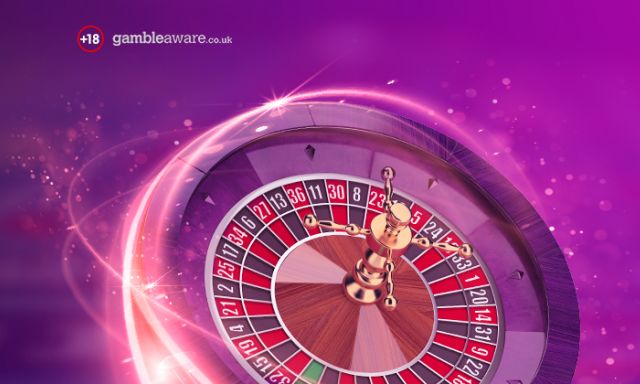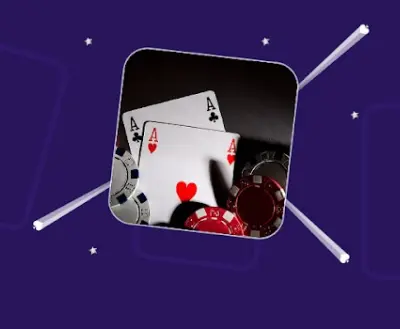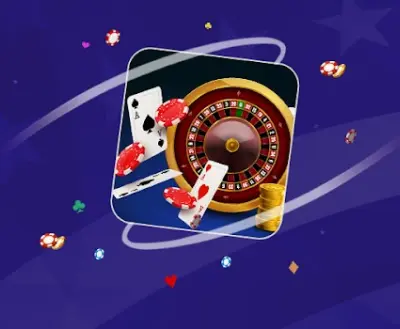The Martingale system is a strategy that gamblers use for a variety of table games. When employing this system, a player will double their bet after each losing wager.
Which games can the Martingale system be used for?
The Martingale system can theoretically be used for any game in which a player faces off against the house. However, it is most often, and most successfully applied to games that offer betting options with close to 50/50 odds. This makes it particularly popular for roulette (red or black), blackjack (nearly even player odds), and sic bo (choosing a single number).

The Martingale system is best suited to 50/50 propositions because it relies on the principle of regression – that all variance will eventually level out. By repeatedly making wagers with even odds, it’s impossible that you will not eventually win. If, on the other hand, you continuously make a wager with 1/10 odds, you can go a long time before regression takes hold.
Losing streaks are acceptable when following the Martingale system, but lengthy ones are the death of your bankroll. To mitigate this losing streaks, players should emphasize the highest odds rather than the highest potential payout.
The Martingale system in action
Let’s look at an example using roulette, which offers a good venue for the Martingale system because it’s red or black 1:1 bet option. If you would like to quickly refresh your memory on the rules of roulette, you can read our basic how to play guide.
Let’s say you bet 1.0 on red to start. There are two possible outcomes: red hits and you double your bet and profit 1.0, or black hits and you lose your bet.
Using the Martingale system, a win resets your bet to the base investment – so you’d once again bet 1.0 – while a loss requires that you double your investment and bet 2.0 on the next spin. In the latter scenario, a winning bet would earn you 4.0 (+1.0 from your total investment), while a losing bet would mean you wager 4.0 on the next spin.
Consecutive losses would require the following bets:
Bet 1 – 1.0
Bet 2 – 2.0
Bet 3 – 4.0
Bet 4 – 8.0
Bet 5 – 16.0
Bet 6 – 32.0
Bet 7 – 64.0
Bet 8 – 128.0
Bet 9 – 256.0
Bet 10 – 512.0
Bet 11 – 1,024.0
Bet 12 – 2,048.0
At any point in this series of bets, a winning bet would earn you an overall profit of 1.0 on your total investment. For instance, if you won your eighth bet, the return would be 256.0, while the total investment of your eight bets would be 255.0 (1+2+4+8+16+32+64+128). Regardless of whether you win the initial 1.0 bet or the twelfth bet, your profit is 1.0 per win.
The odds of success
The appeal of the system is easy to understand. You can look at the example above, and without doing the math, guess that losing 12 nearly even-odds bets in a row is unlikely. And you’d be right. Here’s the math to back it up:
The odds of losing consecutive 50/50 propositions:
It takes an incredible run of bad luck to go bust with these odds. But if you think this makes the Martingale system ironclad, you’d be wrong.
Does the Martingale system work?
In theory, yes. In reality, no.
The Martingale system relies on regression. The odds of losing a 50/50 proposition over and over and over eventually hit zero. However, this does not accurately reflect the parameters of real betting situations, making the Martingale system more of a betting myth than reliable strategy. That’s not to say the system can’t work; only that its theory and practical application are two different stories.
There are three major troubles the system cannot account for.
Troubles with the system
Theoretically, the Martingale system is flawless. However, doubling your bet indefinitely is not a practical approach, given the real-life limitations that players face.
Table limits
Most casino games have minimum and maximum bets for each table. For instance, you may be able to bet between 5.0 and 200.0 dollars on a single spin of the roulette wheel. Both the floor and ceiling are foils for the Martingale system because they reduce the number of times you can double your bet, which substantially decreases your odds of success.
At a table with 5.0-200.0 limits, you can only make six bets before the upper limit stops you from doubling up.
Bet 1 – 5.0
Bet 2 – 10.0
Bet 3 – 20.0
Bet 4 – 40.0
Bet 5 – 80.0
Bet 6 – 160.0
Online tends to be a friendlier venue because it has more flexible limits. For example, PartyCasino’s Live Clubhouse Roulette game offers a 1.0-10,000.0 betting range. This means you can place 14 bets before hitting the limit.
Bet 1 – 1.0
Bet 2 – 2.0
Bet 3 – 4.0
Bet 4 – 8.0
Bet 5 – 16.0
Bet 6 – 32.0
Bet 7 – 64.0
Bet 8 – 128.0
Bet 9 – 256.0
Bet 10 – 512.0
Bet 11 – 1,024.0
Bet 12 – 2,048.0
Bet 13 – 4,096.0
Bet 14 – 8,192.0
1. One failure can eliminate all winnings, plus your original bankroll
2. The total sum wagered in the above example is 16,383.0
The third of these points leads us to the next issue.
Bankroll limits
To constantly double your bet, you need to have a substantial bankroll. For example, if you sit down at our Live Clubhouse Roulette table with 200.0, you can only weather eight straight losses before going bust.
Statistically, this means you are likely to win about 99 times before losing eight consecutive bets. While that’s a good win-loss record, it means that with an original bet of 1.0, you’ll win 99.0, then lose 255.0
The bigger your bankroll, the greater your odds of success when using the Martingale system. However, taking 15,000.0 to the casino or an online table is an impossibility for a large number of players. Even those able and willing to wager a sum that allows for the maximum number of doubled bets are not out of the woods, and the eventual loss can be that much greater.
Bad runs do happen
Though the odds of losing several wagers in a row are low, every gambler knows that ice-cold runs are a very real thing. You can ride the Martingale system for a long time, but it takes just one unlucky streak to wipe out your bankroll. As with all casino games the house always has the edge, so the only way to win in the long run is through nefarious activities such as cheating. All games should be seen as entertainment win or lose.








